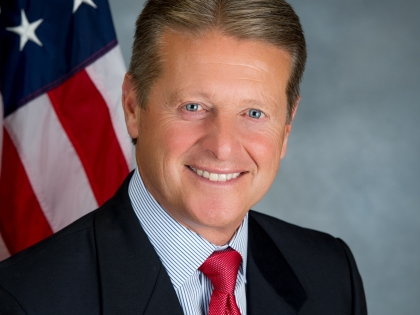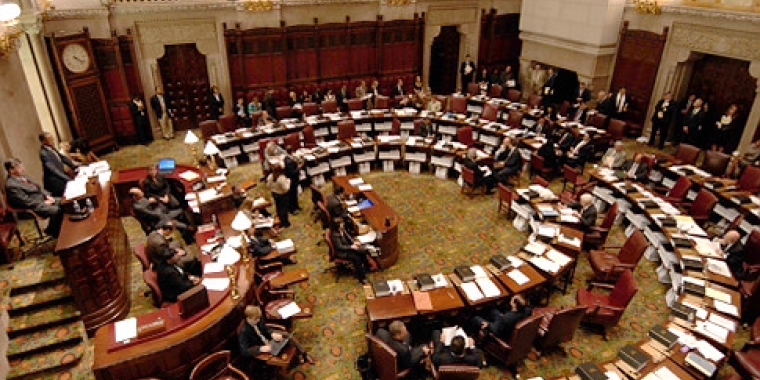
Senator Gallivan Applauds Court Decision Affirming Changes to Regulatory Requirements on Farmers
Patrick M. Gallivan
January 16, 2015
-
ISSUE:
- Agriculture
- Dairy
- Livestock

COURT SAYS DEC REFORMS EASE THE BURDEN ON FARMERS WHILE PROTECTING THE ENVIRONMENT.
Senator Patrick M. Gallivan (R-C-I, Elma) is applauding a decision by State Supreme Court Justice Raymond Elliott, III of Albany affirming regulatory changes made by the Department of Environmental Conservation (DEC) which ease the burden on New York farmers who participate in concentrated animal feeding operations, or CAFO’s. The court dismissed a claim by Riverkeeper Inc., Sierra Club Atlantic and other organizations that challenged DEC’s decision to ease regulations and exempt certain dairy farms from environmental permitting requirements.
“This is good news for farmers across New York and the entire dairy industry,” Gallivan said.
The court found the DEC has the authority to amend CAFO regulations under Environmental Conservation Law (ECL) Article 17 and that the amendments are not unreasonable, arbitrary or capricious as claimed by petitioners. The court’s written decision said, in part:
“[T]he Court finds that the amended regulations are compatible and keeping with the Legislature’s delegation of authority under ECL art 17, namely balancing environmental protection with economic prosperity. The record further reflects that the amended regulations were adopted in the interest of reducing the regulatory burden on dairy farms, ensuring continued flexibility relative to permitting, harmonizing the State’s permitting program with the Clean Water Act’s requirements, and eliminating regulatory overlap.”
Gallivan says the decision is reflective of an ongoing effort to reform the state’s burdensome regulatory system that too often hurts businesses.
“These particular regulations were brought to my attention by Tanya Van Slyke and Pat McCormick from Wyoming County who testified at our Agriculture Regulatory Reform Hearing. As the court noted, easing the CAFO requirements will likely lead to dairy expansion and job creation,” Gallivan said.
In its ruling, the court further stated the amended regulations are consistent with the broad purpose of preventing and controlling water pollution.
-30-



